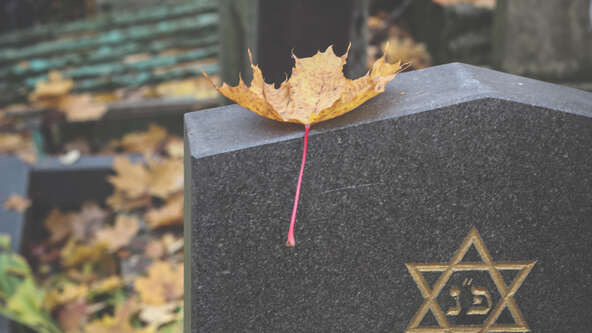Religious Traditions and Cremation Beliefs: Judaism

Jewish tradition places a high value on burial, but perspectives on cremation vary widely among Jewish communities. While Orthodox Judaism prohibits cremation, many Reform and some Conservative Jews may consider it a meaningful choice, especially when paired with practices that honor Jewish mourning customs.
This multi-part series explores religious beliefs about cremation. Whether you choose burial or cremation, the most important thing is that you have a funeral provider who supports your decision.
About Judaism
Judaism is one of the world’s oldest monotheistic religions, with a history dating back over 3,000 years. Rooted in the belief in one God, Judaism emphasizes ethical living, community, and a covenantal relationship between God and the Jewish people. The Hebrew Bible ("Tanakh"), rabbinic teachings, and centuries of tradition guide Jewish religious practice and daily life.
Judaism includes a wide range of denominations, from Orthodox and Conservative to Reform, each with its own interpretations of Jewish law ("halakha") and customs. Despite differences in observance, a shared commitment to memory, justice, and honoring the deceased united Jewish communities across the globe.
Ownership of the Body
In Judaism, caring for the deceased is a sacred responsibility. Jewish law teaches that the body belongs to God, not the individual. The Torah describes the body as created in God’s image, something we borrow during our time on earth. From this perspective, cremation may be seen as destroying what is not ours to alter. Historically, cremation was discouraged and even associated with persecution and tragedy, especially after the Holocaust.
Orthodox and many Conservative authorities maintain a strong preference for burial. However, Reform Judaism and some Conservative rabbis take a more flexible view, allowing for cremation in certain circumstances.
Jewish Funeral Customs
Jewish tradition emphasizes care, respect, and ritual in honoring the deceased. In Jewish mysticism ("Kabbalah"), the soul is believed to separate gradually from the body after death. Families try to hold the funeral as soon as possible, often within 24 hours, out of respect for both the deceased and the soul’s journey. Many of these funeral traditions are deeply rooted in ancient law and spiritual beliefs. Some customs are very similar to Muslim funeral traditions, another Abrahamic religion.
These customs reflect a deep respect for the soul and body, emphasizing presence, prayer, and communal support:
Tahara
"Tahara" is the ritual washing and purification of the body, performed by the "chevra kadisha" (burial society). The body is gently washed, dressed in plain white shrouds ("tachrichim"), and treated with great dignity. It reflects the belief that every person should be honored equally in death.
Shmira
Meaning “watching” or “guarding,” "shmira" involves sitting near the deceased from the time of death until burial or cremation. Traditionally, psalms or other prayers are recited to comfort the soul and show reverence.
Shiva
"Shiva" is a seven-day period of mourning that begins after the funeral. Family members stay home to receive visitors, reflect, and grieve. Bringing simple food or sitting quietly in support is customary. The gift of flowers is typically inappropriate in Jewish mourning, but providing food to family members sitting Shiva is a welcome choice.
Kaddish
The Mourner’s "Kaddish" is a prayer said in memory of the deceased. It praises God rather than mentioning death, and is traditionally recited daily for 11 months by close family members.
Is Cremation Allowed in Judaism?
The answer depends on the denomination:
- Orthodox Judaism strictly prohibits cremation. A full-body burial is required, and Orthodox rabbis generally will not officiate at cremation-related services.
- Conservative Judaism prefers burial but may permit cremation, especially if the ashes are buried in a Jewish cemetery.
- Reform Judaism allows individual choice. Many Reform rabbis will participate in a funeral or memorial service following cremation.
Regardless of denomination, some families choose to bury the ashes to honor traditional values while respecting personal or practical preferences. Ashes may be buried in a Jewish cemetery; some have sections specifically for cremated remains. If you are considering cremation for yourself or a loved one, contact a local rabbi to find out more about his or her guidance on incorporating Jewish customs.
Why Some Jewish Families Choose Cremation
Some Jewish families choose simple cremation, where the body is cremated shortly after death without a funeral beforehand. This option offers a straightforward and dignified approach that can still be followed by a meaningful memorial or burial of ashes following Jewish tradition.
Prepaid cremation plans offer peace of mind. These plans allow individuals to make important decisions ahead of time, easing the burden on loved ones and ensuring wishes are followed.
Prepaying can also help protect against rising costs and give families time to coordinate religious customs, cemetery arrangements, or services with a rabbi.
Tulip provides simple, dignified, and affordable cremation services. Get a free instant quote or call our 24/7 care team to learn more.